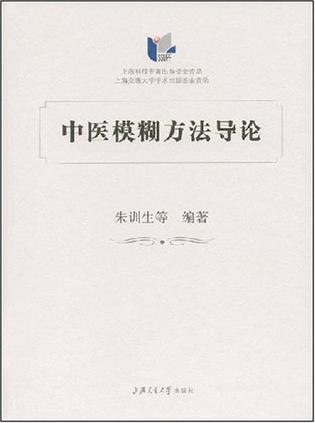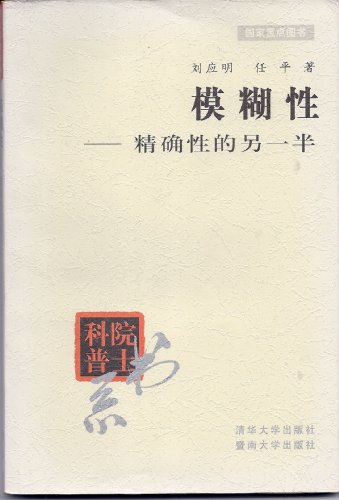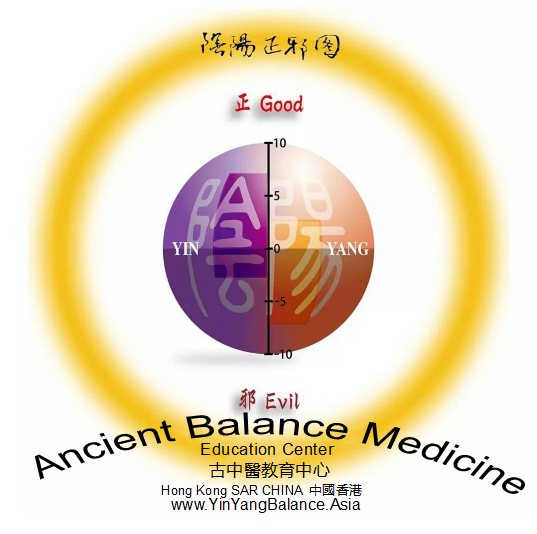
Introduction to the Fuzzy methodology for Traditional Chinese Medicine 中医模糊方法导论 ISBN: 9787313051660
2018 March 03DO NOT DELETE

Introduction to the Fuzzy methodology for Traditional Chinese Medicine 中医模糊方法导论
Author: 朱训生
Pages: 212
Genre(s): Mathematics 數學 道象理數 算術
Publisher: 上海交通大學出版社
Subject:
Country:
Publication Year: 2008
Editionfalse
Finished? No
Signed? No
Description
上海科技专著出版资金资助上海交通大学学术出版基金资助
目录
第1章 绪论
1.1 实际引例
1.2 传统中医中的模糊现象俯拾皆是
1.3 模糊性的哲学基础
1.4 中医中模糊性事物的数学描述
1.5 中医与模糊的天然联系
1.6 模糊技术的应用及中医模糊方法的发展
第2章 中医中的经典集与模糊集
2.1 中医中的经典集合、映射和模糊集合
2.2 两类集合的运算及中医中的实例
2.3 中医中的直积和关系
2.4 模糊集合与经典集合的联系
第3章 中医模糊方法的基础——隶属(度)函数的确定
3.1 隶属函数可以成为中医量化的一个手段一实际引例
3.2 用统计方法求中医模糊集的隶属函数
3.3 中医处方优选的二元对比排序法
3.4 二元对比倒数法求健康隶属度
3.5 中医症状量化一模糊数的概念及其应用
3.6 本章小结
第4章 中医模糊模式识别
4.1 中医模糊模式识别概述
4.2 从邮政编码识别到舌象仪的模板匹配原理
4.3 中医模糊模式识别中“个体识别——最大隶属度原则”的应用
4.4 中医模糊模式识别中“群体识别——最大贴近度原则”的应用
4.5 肝炎后肝硬化中医模糊模式识别实例
第5章 中医模糊聚类分析
5.1 中医中模糊关系合成的常用性质
5.2 分解定理和扩张原理及其在中医中的一个应用
5.3 关系及中医模糊关系的自反、对称、传递等性质
5.4 中医模糊等价关系和相似关系
5.5 模糊聚类分析中模糊相似矩阵的建立
5.6 模糊聚类分析中的传递偏差及模糊聚类分析的步骤
第6章 中医模糊综合评判
6.1 综合评判、模糊综合评判与中医模糊综合评判
6.2 中医一级模糊综合评判及其逆问题
6.3 中医中算子模型、权重、评判指标及评判矩阵的讨论
6.4 中医多级模糊综合评判
第7章 中医模糊预测与决策
7.1 预测、模糊预测与中医模糊预测
7.2 模糊预测原理、方法及生理和医学上的应用实例
7.3 模糊决策原理、方法及中医中的一个应用
7.4 其他模糊预测与决策方法介绍
附录
参考文献
后记
序言
我与朱训生教授都是20世纪60年代的大学生和我国机械工程的首批工学博士。他原毕业于复旦大学数学系,在那史无前例的特殊历史时期,分配到某机械厂生产现场锻炼十几年并自学机械;恢复研究生招生后报考上海交通大学机械系。我则在西安交通大学机械系。我们不但神交已久,且在国家自然科学基金课题汇报会、学术交流会、成果展示会等科技活动中,经常谋面;以他为第1完成人的课题组,将现代数学与精密加工、精密测量结合,1992年和1997年先后获国家教育委员会科技进步奖(甲类)2等奖和发明2等奖,1998年获国家技术发明奖4等奖;此后在学术会议上却多年不见其身影,原来他大病一场。然而他从小喜欢的中医,特别是1989年起应上海针灸经络研究所之邀合作针灸课题学习的医学知识给他帮助不小,这次他索性针对自己的病钻研起医学来,博采各医院、众医生及多种医学文献之长,几年后竟痊愈了,很多人包括很多医生都啧啧称奇。近年我正从事交叉学科研究,呼吁重视理工交叉,工管交叉,机、电、热、声、光、计一体化,医工结合,2005年我与他重逢,得知他病中与病后竟还完成了多个中医与工程结合的课题,我大喜过望,我呼吁的交叉范围更扩大了。
利用现代科技手段来实现中医药现代化是大家所盼望的。但在实践中一些人简单地将它变成了西医化,引起老中医反感。朱训生教授扎扎实实地深入到中医药领域,老老实实地学习中医药理论,切切实实地与中医医师合作,尝试将工程方法与古老的中医文化接轨,他和合作者及双方学生一起从大量实际数据出发,严严实实地进行数据分析、处理、归纳、挖掘,借用在很多工程领域使用得很成熟的一些方法来解决传统中医药学术中的一些问题,取得了初步成功。
table of Contents
Chapter 1 Introduction
1.1 Actual cited examples
1.2 Ambiguities in Traditional Chinese Medicine
1.3 The Philosophical Foundation of Ambiguity
1.4 Mathematical Description of Ambiguous Things in Traditional Chinese Medicine
1.5 The natural connection between traditional Chinese medicine and vagueness
1.6 Application of Fuzzy Technology and Development of Fuzzy Methods in Traditional Chinese Medicine
Chapter 2 Classical and Fuzzy Sets in Traditional Chinese Medicine
2.1 Classical Collection, Mapping and Fuzzy Collection in Traditional Chinese Medicine
2.2 Two sets of operations and examples in Chinese medicine
2.3 Direct Product and Relationship in Traditional Chinese Medicine
2.4 The relationship between fuzzy sets and classic collections
Chapter 3 Basics of Fuzzy Method of Traditional Chinese Medicine: Determination of Subordinate (Degree) Functions
3.1 Membership functions can be a means of quantification in Chinese medicine - a practical example
3.2 Finding membership functions of TCM fuzzy sets by statistical methods
3.3 Binary Contrast Sorting Method for Traditional Chinese Medicine Prescription
3.4 Binary comparison reciprocal method for healthy membership
3.5 The concept of quantifying a fuzzy number in TCM symptoms and its application
3.6 Summary of this chapter
Chapter 4 Fuzzy Pattern Recognition of Traditional Chinese Medicine
4.1 Overview of Fuzzy Pattern Recognition in Traditional Chinese Medicine
4.2 Template Matching from Postal Code Recognition to Tongue Imager
4.3 Application of "Individual Identification - Principle of Maximum Degree of Membership" in TCM Pattern Recognition
4.4 Application of "Group Identification - Principle of Maximum Closeness Degree" in TCM Pattern Recognition
4.5 Examples of Fuzzy Pattern Recognition of Traditional Chinese Medicine for Posthepatitic Cirrhosis
Chapter 5 TCM Fuzzy Cluster Analysis
5.1 Common Properties of Fuzzy Relation Synthesis in Traditional Chinese Medicine
5.2 Decomposition Theorem and Expansion Principle and Its Application in Traditional Chinese Medicine
5.3 Relationships and reflexivity, symmetry, transmission, etc.
5.4 TCM Fuzzy Equivalent Relationship and Similarity Relationship
5.5 Establishment of Fuzzy Similarity Matrix in Fuzzy Clustering Analysis
5.6 Transfer Bias in Fuzzy Cluster Analysis and the Steps of Fuzzy Cluster Analysis
Chapter 6 Fuzzy Comprehensive Evaluation of Traditional Chinese Medicine
6.1 Comprehensive Evaluation, Fuzzy Comprehensive Evaluation and Fuzzy Comprehensive Evaluation of Traditional Chinese Medicine
6.2 TCM First Level Fuzzy Comprehensive Evaluation and Its Inverse Problem
6.3 Discussion on Operator Model, Weights, Judgement Criteria and Judgment Matrix in Traditional Chinese Medicine
6.4 Multilevel Fuzzy Comprehensive Evaluation of Traditional Chinese Medicine
Chapter 7 TCM Fuzzy Prediction and Decision
7.1 Prediction, Fuzzy Prediction and TCM Fuzzy Prediction
7.2 Principles and Methods of Fuzzy Prediction and Examples of Physiological and Medical Applications
7.3 Fuzzy Decision Principles, Methods and an Application in Traditional Chinese Medicine
7.4 Introduction to Other Fuzzy Prediction and Decision Methods
appendix
references
postscript
Preface
Professor Zhu Xunsheng and I were both university students in the 1960s and the first batch of engineering doctorates in China's mechanical engineering. He graduated from the Department of Mathematics of Fudan University. In an unprecedented historical period, he was assigned to a mechanical factory to produce on-site exercise for more than ten years and self-learning machinery. After resuming postgraduate enrollment, he applied to the Department of Mechanical Engineering of Shanghai Jiaotong University. I am in the Mechanical Department of Xi'an Jiaotong University. We have not only divine exchanges for a long time, but we have often met in scientific and technological activities such as the National Natural Science Foundation project briefing, academic exchanges, and product exhibitions. We have used the task of the first person to set up modern mathematics and precision machining and precision. Measure combination, 1992 and 1997 won the National Education Commission Science and Technology Progress Award (A) 2nd Prize and Invention 2nd Prize, and won the 4th National Technology Invention Award in 1998; it has not been seen in the academic conference for many years. It turned out that he was seriously ill. However, the Chinese medicine that he liked since he was a child, especially since 1989, has been assisted by the Shanghai Acupuncture and Meridian Research Institute in the cooperation of acupuncture and moxibustion. This time, he has been assisting his ailments in the development of medicine. The length of the doctors and many medical literatures was cured several years later. Many people, including many doctors, were amazed. In recent years, I am engaged in cross-discipline research, calling for attention to the intersection of science and engineering, cross-sectoral management, integration of mechanics, electricity, heat, sound, light, and instrumentation, and integration of medical work. In 2005, I reunited with him and learned that he was ill and sick. I have also completed a number of topics in the combination of traditional Chinese medicine and engineering. I am overjoyed and the scope of my appeal is even wider.
It is everyone's hope to use modern scientific and technological means to realize the modernization of Chinese medicine. However, in practice, some people simply turned it into western medicine, which caused an aversion to old Chinese medicine. Professor Zhu Xunsheng took a solid and in-depth understanding of the field of traditional Chinese medicine, honestly studied the theories of traditional Chinese medicine, and practically collaborated with TCM physicians to try to integrate engineering methods with ancient Chinese medicine culture. He and his partners and students from both sides learned a lot from actual data. Starting from this, data analysis, processing, induction, and excavation were conducted rigorously, and some methods used in many fields of engineering were used to solve some problems in traditional Chinese medicine academics, and initial successes were achieved.
Notes
HK$ Donated by:
https://book.douban.com/subject/3186384/
https://www.amazon.cn/dp/B001EC62HI/ref=sr_1_1?ie=UTF8&qid=1522690742&sr=8-1&keywords=9787313051660




 古中醫學會心對心
古中醫學會心對心 微博 炎黃子孫共振中醫
微博 炎黃子孫共振中醫 古中醫教育中心面對面
古中醫教育中心面對面 古中醫教育中心 Our Website
古中醫教育中心 Our Website